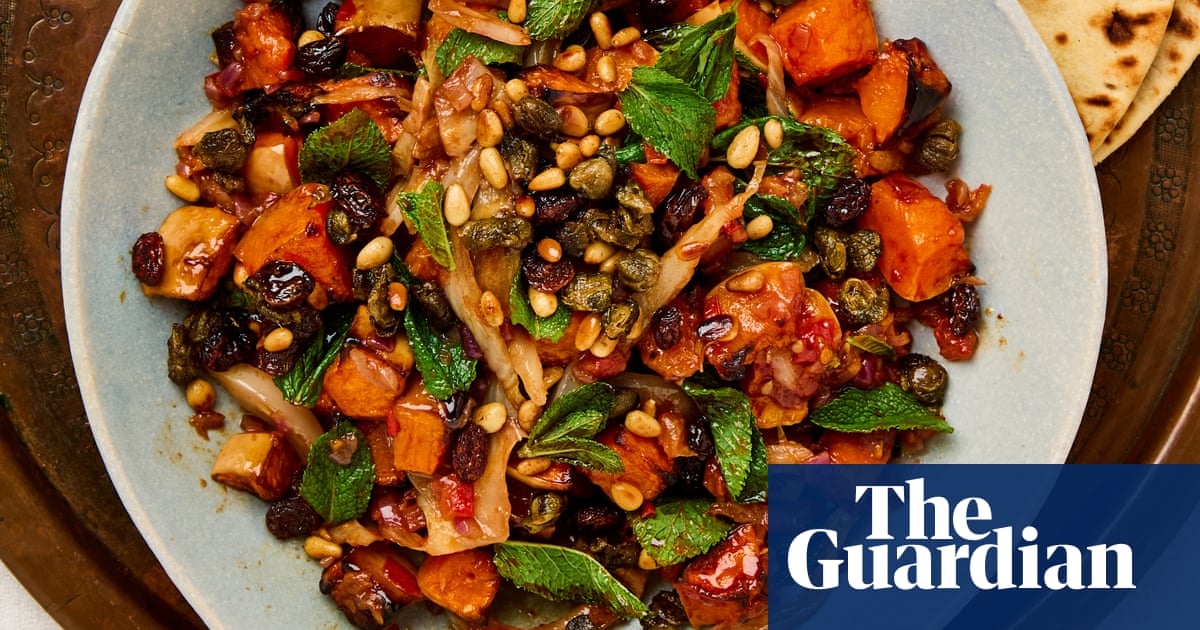Being in the business of recipe writing means I am always seeking the new, always moving on and rarely resting on a single dish. Until summer starts knocking, that is. The sun makes me want to slow down, and I find myself wanting a variation of vegetablesagrodolceon repeat. Agrodolce is Italian for sour (agro) and sweet (dolce), which in my kitchen translates to a pile of meltingly soft vegetables, all slick with olive oil, sweet with onions, and cut with vinegar and capers. Often, this takes the form of my husband Hugh’soven-baked caponata, but I also love the comfort of squash and the liquorice sweetness of the cooked fennel here.
Prep15 minCook40 minServes4
1 squash(1.1kg), halved, deseeded and cut into 1½cm dice8 tbsp extra-virgin olive oil, plus extra to finishFine sea salt2 tbsp capers in brine, drained2 tbsp pine nuts2 tbsp raisins1 fennel bulb(300g), trimmed, halved and cut into ½cm-thick slices1 red onion, peeled and finely diced2 large tomatoes(300g), finely diced2 tbsp balsamic vinegar30g mint, leaves picked, to get 15gGreek flatbreads, to serve
Heat the oven to 240C (220C fan)/475F/gas 9, and line two medium baking trays (or one large tray) with greaseproof paper.
Put the diced squash in a bowl, pour over three tablespoons of the oil, add a half-teaspoon of salt and toss to coat. Tip out evenly on the lined trays and roast for 25-30 minutes, until cooked through and nicely browned.
Meanwhile, put two tablespoons of oil in a large frying pan on a medium heat and, once hot, add the drained capers and cook for five minutes, until they start to crisp up. Add the pine nuts and raisins, cook for a further two minutes, until the raisins puff up and the pine nuts brown, then tip into a bowl.
Put the remaining three tablespoons of oil in the same pan, set it over a medium heat, then add the fennel, onion and three-quarters of a teaspoon of salt, and cook, stirring occasionally, for 20 minutes, until soft. Add the tomatoes and balsamic vinegar, and cook for another eight minutes, until the mixture turns jammy. Fold in the roast squash and reheat, if need be, then stir through the mint.
Top with the pine nut mixture and serve with grilled flatbreads.
